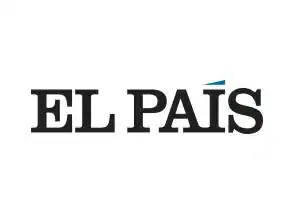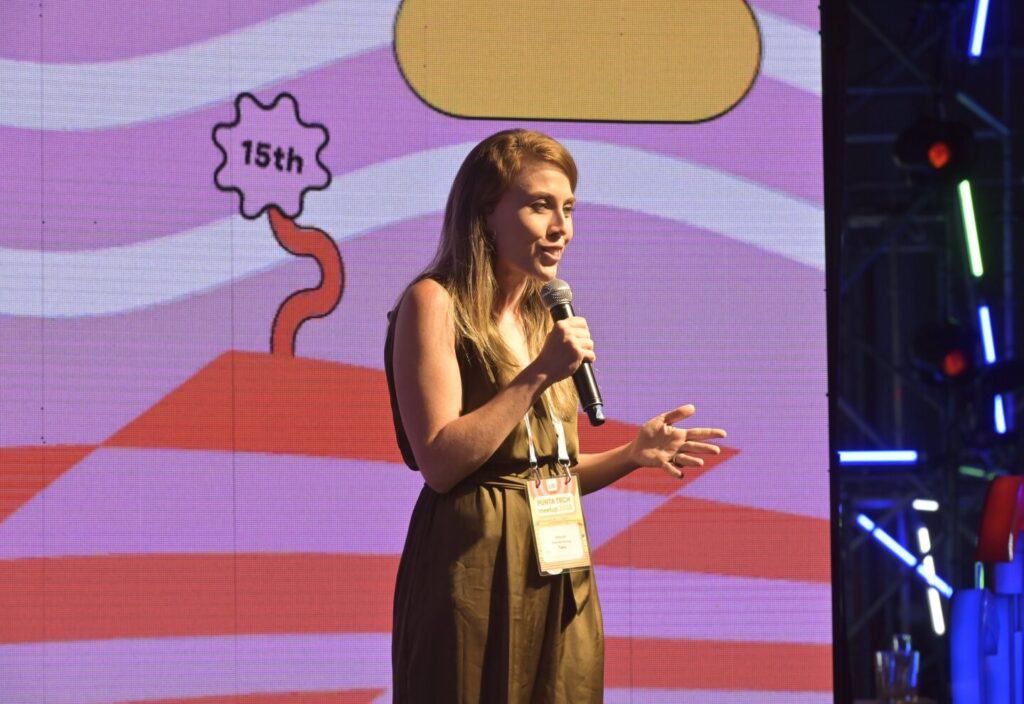February 1, 2023
Punta Tech Meetup and the Confession of Three Disruptors Who Think Big

Shai Reshef, Matías de Tezanos and Deborah Palacios explained the challenges and how they scaled their projects at the technological mega event
“Think of our world if 100 million students could access higher education.”
With this sentence, Shai Reshef, founder of the University of the People (UoPeople), closed the Punta Tech Meetup conferences , and invited attendees to reflect on what he has been pursuing since 2009: “helping students to overcome geographical, political or personal barriers to achieve their university studies.
Reshef, creator of the first accredited and online American university with free academic degrees , was this Monday at the 15th edition of Punta Tech Meetup , the technological mega-event that began as a “barbecue” among friends at the home of businessman Sergio Fogel.
Organized by Fogel, Pablo Brenner, and Carolina Kind and Bruno Gadea from Lucero Comunicación, this year’s edition confirmed the validity of that idea by summoning more than 1,500 people, selling out their tickets in advance, and bringing together entrepreneurs, businessmen, investors, venture capital funds and world-class speakers.
Education for all
The creator of UoPeople elaborated on the opportunity that the university generates for inhabitants of countries around the world as a way to overcome inequities in access to education. “Take Nigeria, for example. Every year 10.5 million students pass the university entrance exam. Of them, 1.5 million approve. In certain places women are deprived of higher education. In others, the policy is tightened towards refugees, and if they are accepted they hardly let them go to higher education, so they have practically no way out of their situation”, he argued.
Today, the UoPeople has more than 125,000 students from more than 200 countries, and “practically doubles every year.”
In addition, it is led by leaders from institutions such as Columbia, the University of California (Berkeley) and Rockefeller University. It has collaborations from Harvard Business School, New York University, University of Edinburgh, McGill University, Effat University and LIU University.
Reshef did not start his project from scratch. He has a track record of more than 20 years in for – profit institutions in the US and created the first online university in Europe.
It was during this last stage that he discovered that for most people, although online education lowers barriers, accessing it “was a wish they could not afford.”
And sold it.

Courtesy Punta Tech Meetup
After a “semi-retirement” in New York, he wanted to give back to the world “something with impact” with education as the center. “If you educate one person you can change their life, if you educate many you can change the world,” she stressed.
He discovered a lot of freely available content, open source technology, and a community that “shares, teaches, and learns from others for free.” «And I said to myself: what I have to do is put all that together and create a free university. I did it in January 2009 », she recalled.
In that month he received hundreds of emails from teachers willing to help. “The university is based on volunteers. Me, the deans and the professors are. It is a university that is made for the people, by the people. We have 36,000 volunteers at the service of our students,” Reshef explained.
In May 2009 they began accepting students and classes began in September with 177 students from 49 countries, many survivors of Rwanda and the earthquake in Haiti. “It was a lot of homeless people and refugees. So, to make it a success, we had to give them personal attention with small virtual classes of 20 to 30 students.”
In May 2009 they began to accept students and in September of that year classes began with 177 people. Today it has more than 125,000.
Another important detail is that they dictate careers “with more probabilities of helping to find a job.” Today, many of his students work at companies such as Google, Amazon, Microsoft, Apple and the World Bank, among others, Reshef noted.
When it came to financing, he recognized that they rely heavily on technology and that they have low costs because, for example, they do not have buildings. “This generates savings but also something more important: it does not limit our growth,” he said. Also, by using free and open resources available on the Internet, he saves his students from having to spend on books.
In any case, although the courses are free, the exams have a cost. In total, making a career at UoPeople implies investing US$4,800. To compensate, they provide scholarships that are financed with financial support from individuals and foundations such as Bill and Melinda Gates.
Thank you, Uruguay
For Matías de Tezanos, creator of Hotels.com and current CEO and co-founder of Peoplefund, returning to Uruguay had a special flavor. The Costa Rican entrepreneur opened the night of speakers by confessing that he owes much of his present to a visit he made to the country in 1994.
“The first time I connected to the Internet was in Uruguay in 1994, before that I did not know what that network was,” he recalled. That experience was what allowed him to understand that, with this technology, he could talk to people from all over the world. Then, according to what he said, she became obsessed with learning to program and when he returned to Central America he began to make websites. “Most of those who paid were the hotels. After making over 100 sites across the Americas, I thought I had a large hotel clientele and decided to buy the Hotels.com domain. I developed a portal that at the beginning was very simple, there was no credit card, penetration was very low, everything was complex. Eventually it changed, in 2001 we managed to integrate many hotels, and in 2003 the company was acquired by Expedia ».

After that sale, he began his journey around the world. He created other companies that led him to live 10 years in the US, then in Japan, Mexico and Argentina. That cosmopolitan experience was key to his present. «I have realized that being local is relevant, that incredible things can be achieved from anywhere in the world. At the end of 2011 we founded an investment group. In the last 10 years we have dedicated ourselves to creating technology companies in different sectors that are reason to dream a lot like plasma reactors that create diamonds, companies that grind solar panels to replace the graphite in batteries and other quite sophisticated ones. But time passed and I was born to start another project. I stopped being an investor and focused on technology that transforms plastic into oils for the agricultural industry. But the most important thing is that globalization is becoming faster and more real, and it is easier to enter markets, he pointed out.
The power of risk
Trust your instincts and take a chance. That was the slogan of Brazilian Deborah Palacios, co-founder of Tuvis , an Israeli-Brazilian platform that connects WhatsApp with customer relationship management (CRM) systems such as Salesforce and Microsoft Dynamics.
“You have to be encouraged to take risks, you never know if the person who is going to give you a chance is on the other side of the planet. You don’t know him, but he may be there to tell you come with me this time,’” he highlighted. Palacios endorses this maxim with her own story. “With my partner Yanir Calisar we started a company without knowing each other. One day I was at home -I had worked in multinationals, I had my own business and I sold it- and I received an invitation on LinkedIn from a person from Israel . He had no one in common with him. I look and say, ‘who writes me about a company with only one person on the other side of the world?’ But I decided to start because even though I didn’t know who he was, I liked what we were going to build together,” she recounted.

Her instinct was right. After three or four months they had about 50 clients, including XP, one of the largest financial companies in Brazil. Then they took the step of scaling and went out to attract investment; they raised US$ 11 million at the end of 2021. And there the partners finally met. “The interesting thing is that our investors did not know us in person,” said Palacios.
Today they exceed 100 clients in 35 countries.
“You never know where the opportunities are. We started the company with two people and today we sell to Petrobras, Pinterest, many large ones globally. Everything is possible if you are passionate, if you believe in your dreams,” she finished.
